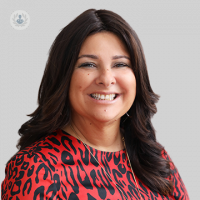Neurodiversity and bullying: How to help your child thrive
Written by:In her latest online article, renowned consultant cognitive neuropsychologist Professor Debora Elijah offers her expert advice on how neurodivergent children can deal with bullying.

What is neurodiversity?
Neurodiversity is the concept that neurological differences, including autism, ADHD, and others, should be recognised and respected as natural variations of the human brain rather than as disorders to be cured or corrected.
It promotes the idea that diversity in neurological functioning is a valuable and essential aspect of human society.
What are the signs that a neurodivergent child might be experiencing bullying?
Here are some signs to watch for:
- Emotional changes: Look for sudden mood swings, increased anxiety, depression, or withdrawal. A bullied child may become more irritable, anxious, or sad.
- Physical symptoms: Pay attention to unexplained physical complaints such as headaches, stomach aches, or frequent illnesses. Bullying can lead to stress-related physical symptoms.
- Changes in behaviour: Watch for changes in behaviour like a sudden decline in academic performance, reluctance to attend school, or avoidance of certain places or activities.
- Social isolation: A bullied child may become more socially isolated, have difficulty making or maintaining friendships, or express loneliness.
- Loss of belongings: Frequent loss or damage to personal belongings, such as school supplies or clothing, might be a sign of bullying.
- Visible signs of harm: Look for unexplained cuts, bruises, or other injuries. While not all bullying involves physical harm, some instances may result in visible signs.
- Changes in eating or sleeping habits: Bullying can disrupt a child's eating and sleeping patterns. Watch for changes like appetite loss, overeating, or difficulty sleeping.
What strategies can neurodivergent children themselves use to cope with and report bullying incidents?
- Develop self-awareness: Encourage neurodivergent children to learn about their own strengths and challenges. Understanding their unique traits can boost self-esteem and resilience.
- Practice self-advocacy: Teach them how to assert themselves assertively, whether it's saying "stop" to a bully or asking for help from a trusted adult.
- Establish safe spaces: Identify safe spaces in the school or community where they can go if they feel threatened or overwhelmed.
- Buddy system: Encourage them to form friendships or alliances with peers who can provide support and intervene if they witness bullying.
- Use visual supports: Visual supports, such as social stories or visual cues, can help neurodivergent children understand and remember the steps to take if they encounter bullying.
- Learn de-escalation techniques: Teach calming techniques, such as deep breathing or mindfulness, to help manage anxiety or anger in stressful situations.
How can we educate neurotypical children about neurodiversity and empathy to promote better understanding and reduce bullying?
To educate neurotypical children about neurodiversity and empathy:
- Inclusive curriculum: Incorporate lessons on neurodiversity, differences, and empathy into the school curriculum to foster understanding from an early age.
- Storytelling: Share stories and personal experiences of neurodivergent individuals to humanise and normalise neurodiversity.
- Role-playing: Use role-playing activities to help children practice understanding and empathising with different perspectives and challenges.
- Guest speakers: Invite neurodivergent individuals and experts to speak at schools to share their experiences and insights.
- Discussion and reflection: Encourage open discussions about neurodiversity and empathy, allowing children to ask questions and express their feelings.
What role can mental health professionals play in helping neurodivergent children who have been bullied?
- Emotional support: Mental health professionals can provide a safe and empathetic space for the child to express their feelings, validate their experiences, and address any emotional distress resulting from bullying.
- Assessment and diagnosis: They can assess the child's mental health and emotional well-being to identify any specific challenges or disorders, such as anxiety or depression, that may have developed as a result of bullying.
- Coping strategies: Mental health professionals can teach the child coping strategies to manage stress, anxiety, and emotional reactions related to bullying incidents.
Are there any resources or organisations in the UK that specialise in supporting neurodivergent children who are victims of bullying?
The Elijah Centre can provide therapy in emotional support, coping strategies and building resilience
If you would like to book an appointment with Professor Debora Elijah, you can do so today via her Top Doctors profile.


